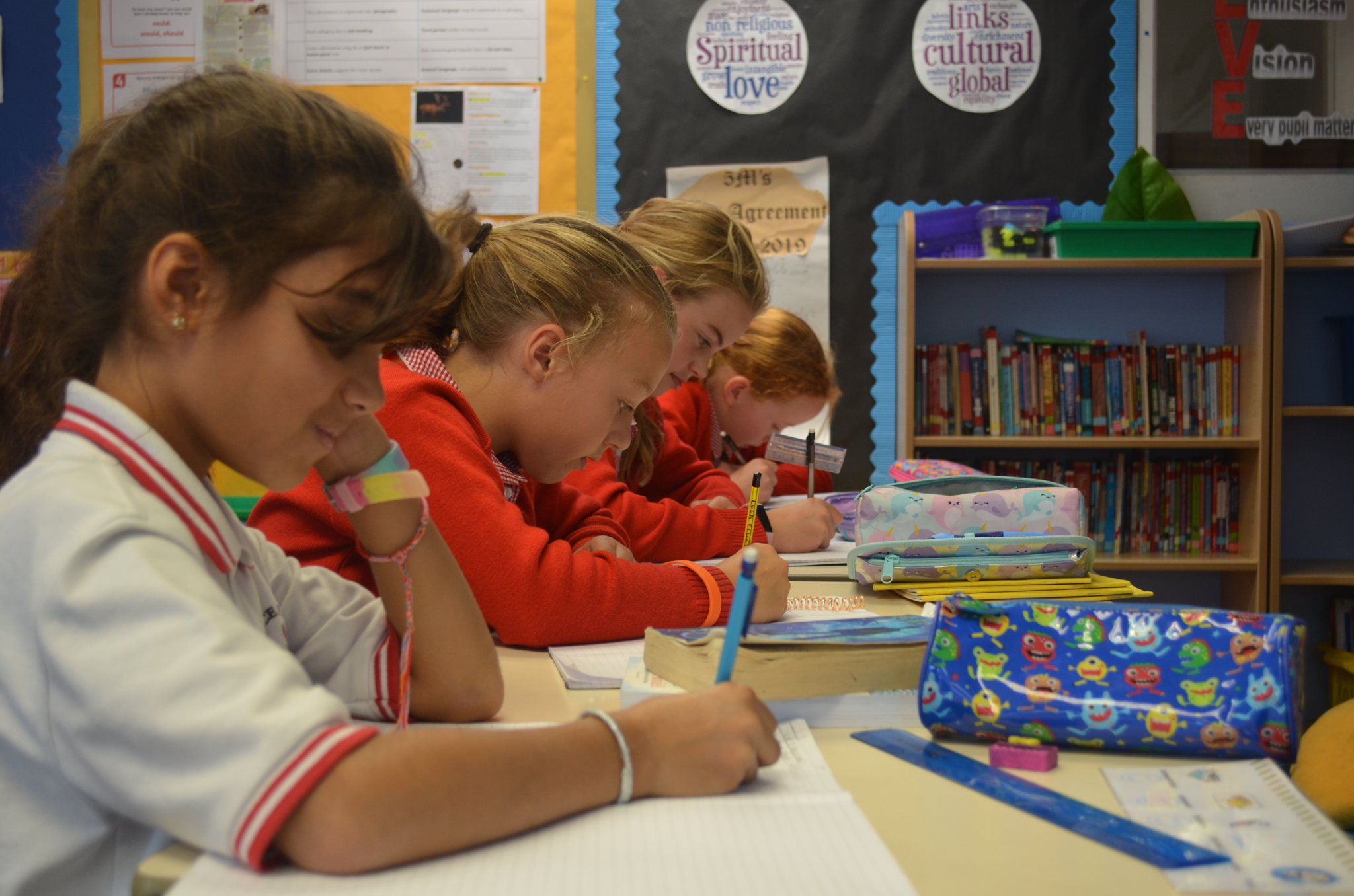English - Writing at Wallace Fields Junior School
Please click here or on the image below to watch a short video about English writing at Wallace Fields Junior School this academic year.
Pupils at Wallace Fields are encouraged to produce writing that is clear, entreating, informative and engages the reader. They are given many real opportunities to write for a purpose in English and across the curriculum at Wallace Fields. During English lessons, a text or video is used to generate a purpose for writing but their skills are embedded in other subjects through a broad and balanced curriculum. Children generate ideas as a class or with their peers and effectively self-evaluate and edit their own writing following discussion and feedback.
The programmes of study for writing at key stage 2 are divided into:
• transcription (spelling and handwriting)
• composition (articulating ideas and structuring them in speech and writing).
It is essential that pupils develop competence in these two dimensions.
This is our writing progression map based on the National curriculum. These skills are taught through the study of texts and films in our English lessons. It illustrates the progression of skills taught in composition, grammar & punctuation and spelling.
English Writing Progression Map
How can parents help?
-
Encourage your child to read widely – See the reading section at the top of this page
-
Share new words found in books, notices, adverts etc and help to explain what they mean.
-
Find synonyms for a new word and practise putting the word in a sentence.
-
Find opportunities to write at home, e.g. a diary.
-
Print off the spelling lists below and practice spelling these key words.
Parents Writing Workshop
Start of the Year Must Haves

